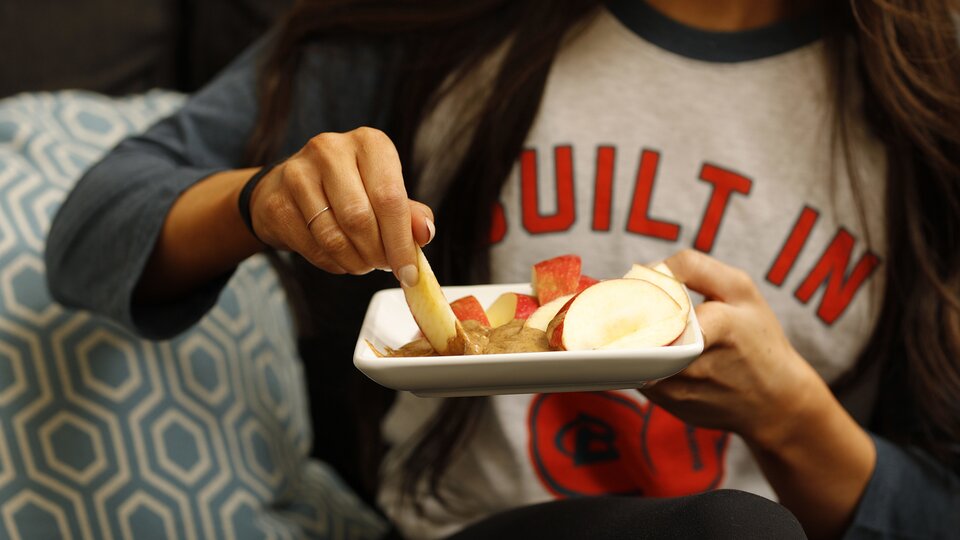Products You May Like
Food fads: One moment kale nabs the spotlight, only to be supplanted by the next thing, whether it’s mache (“mahsh”) or almond butter. The new must-have food darling gets promoted on social media, recipes are written for it, and it is crowned as the latest secret to total health—until the next thing comes along. The schoolyard favorite peanut butter, though, seems to have staying power. Maybe that’s because it continues to be nutritious, filling, budget friendly, and most importantly, delicious.
1. Peanut Butter is Fatty, But in a Good Way
About 75 percent of the calories in peanut butter come from fat. Believe it or not, that is something to celebrate, not lament. When you choose a brand that contains fat from peanuts and no other added fat sources—no palm oil and no hydrogenated oil—then roughly half of the fat calories you consume are from monounsaturated fats (MUFA). That’s a good thing.
A study of 63,442 women and 29,942 men found that MUFA sourced from plant foods like peanut butter appears to do a better job at keeping heart disease at bay than MUFA sourced from animal food sources. Another study, this from the Journal of American College of Cardiology, suggested that eating peanuts at least twice per week can reduce the risk of heart disease by up to 23percent. The study also showed that replacing calories from refined carbohydrates, saturated fat, and trans fat in the diet with MUFA calories can support healthy cholesterol levels and heart health.
2. Peanut Butter Gives You More Protein
Often overlooked in all the cashew butter and tahini hoopla is that ye-olde peanut butter still reigns supreme in the protein department. Each 2-tablespoon serving of peanut butter offers up 8-9 grams of protein compared to 5-6 grams from cashew butter or tahini. That’s not enough to dethrone protein heavyweights such as Greek yogurt or chicken breast, but it is enough to make it a reliable, affordable, go-to source of daily protein.
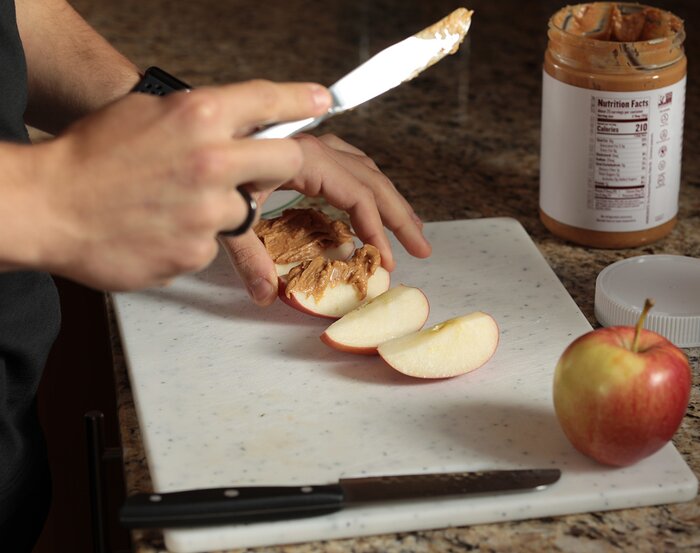
Furthermore, eating more plant-based proteins seems to be an ally in the battle against type 2 diabetes. An investigation published in the British Journal of Nutritionfollowed people who replaced at least part of the daily calories they get from animal protein with calories from plants. Researchers found that by consuming just 1 percent of their daily calories from plants such as peanuts, participants could reduce their risk for type 2 diabetes by an impressive 18percent.
3. Peanut Butter Boosts Your Micronutrients
Eating nutrient-dense peanut butter is also a great way to up your intake of several important vitamins and minerals, including niacin, vitamin E, phosphorus, manganese, and magnesium. People who boost their daily magnesium intake for three months may lower their blood pressure by several percentage points without making other changes in their diet, per a study in the journal Hypertension. The study notes that magnesium relaxes your blood vessels, which increases blood flow and, in turn, decreases blood pressure.
You must be careful, though, because many brands of peanut butter can be full of sugar. Look for brands with nothing more than peanuts and perhaps a touch of salt in the ingredient list. As you might imagine, flavored peanut butters are likely to be sweetened.
Now that you know why you should welcome peanut butter back into your kitchen, here are three ways to get more PB into your diet without slathering more of it on toast or, for you hard-core PB addicts, spooning it straight out of the jar.
1. Thai-Style Chicken Salad
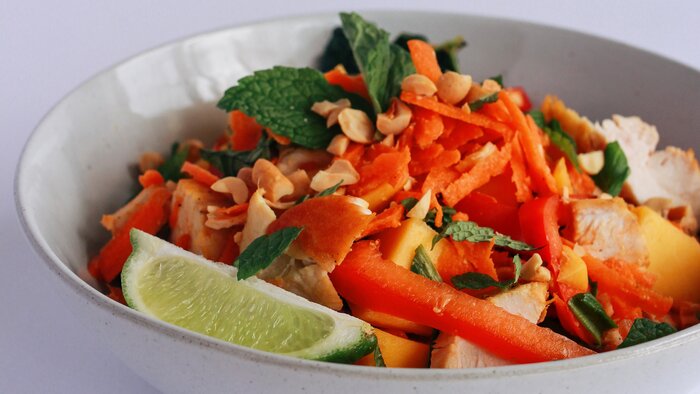
This vibrant salad is full of nutritional heavyweights including kale, ginger, and quinoa. It can be served either for dinner or to breathe new life into your lunch routine. Since kale can be massaged (by hand!) with the creamy peanut dressing a few days in advance without going soggy, fear not about making this salad ahead of time and keeping it chilled for up to three days.
2. Peanut Butter Hummus
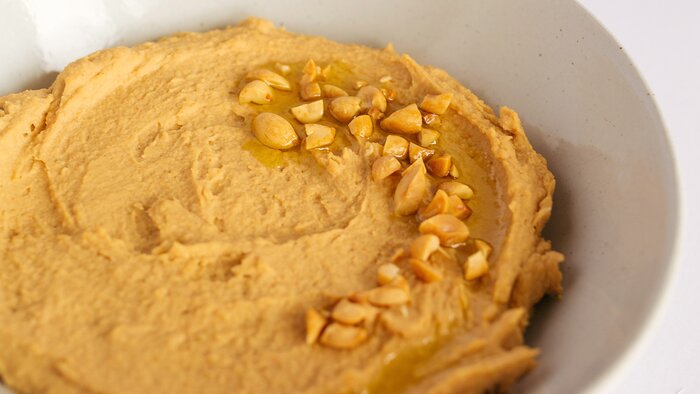
Breaking from tahini tradition, peanut butter infuses this hummus with a flavor that will appeal to all the generations in your household. Possible dippers range from baby carrots and apple wedges to pretzels and baked tortilla chips. You can also use the hummus as a sandwich spread, or whisk some of the hummus with oil and vinegar to make a creamy salad dressing. Going the extra mile to simmer your canned chickpeas with baking soda helps break down the chickpeas to give you creamier hummus.
3. PB Banana Chia Pudding
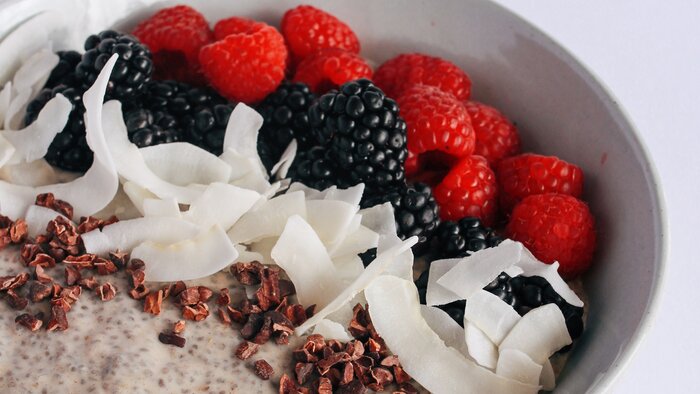
Of all the amazing flavor combos in the food world, this one never disappoints; peanut butter and banana will forever be a match made in taste-bud heaven. Spoon up this chia pudding for a quick breakfast or after a workout to kick-start muscle recovery. It delivers a hunger-crushing combination of protein, fiber, and healthy fats. If you want to bump up the protein numbers, blend in a couple scoops of plain or vanilla protein powder. Options for toppings include cacao nibs, roasted peanuts, sliced banana, fresh berries, coconut flakes, and dark chocolate chips.
